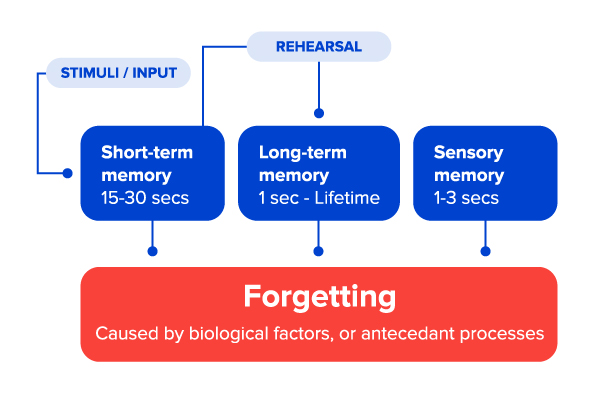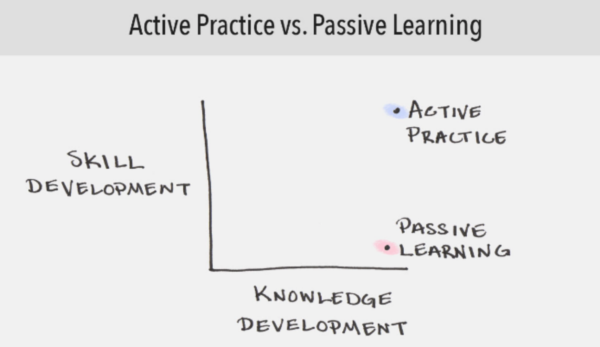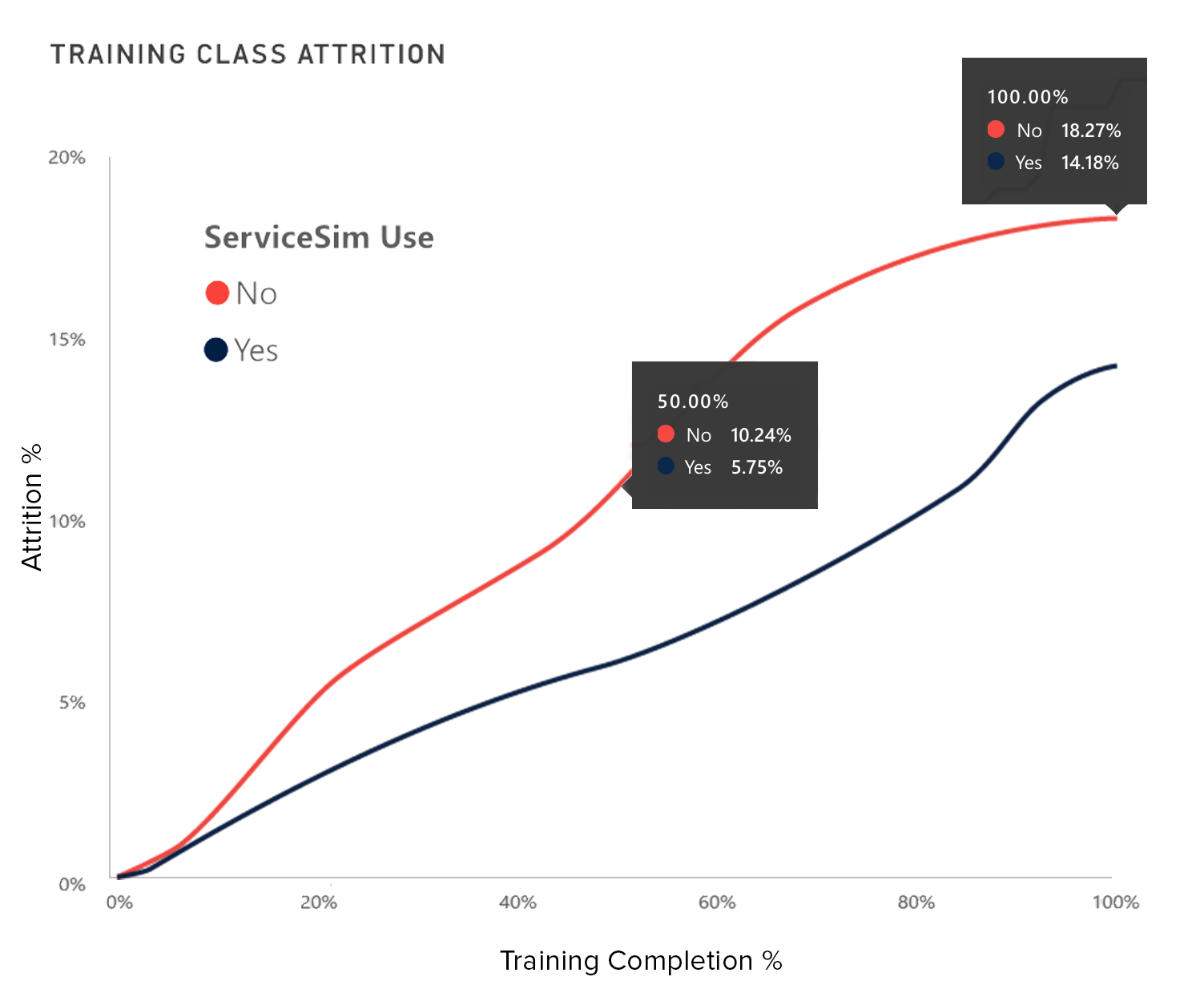Delivering outstanding customer experiences requires highly skilled and well-trained agents who can navigate complex interactions. But when it comes to honing these essential skills, the conventional classroom-based training model may not be sufficient to prepare agents for the diverse and demanding challenges they face daily. Instead, companies must look to innovative contact center technology solutions like Vistio, which offers next-best-action guidance and automation, to prepare their customer service agents fully.
In this article, we will explore the key elements of customer service agent training, the drawbacks of traditional methods, and how Vistio’s cutting-edge approach to training is reshaping the contact center landscape. Join us as we delve into the world of contact center innovation and uncover the secrets behind exceptional customer service.
Download Now: Your Roadmap to Successful AI Implementations in the Contact Center
Understanding the Difference Between Learning and Practice in Contact Centers
In the realm of contact centers, learning and practice play distinct yet interconnected roles in shaping an agent’s skill set and overall performance. Learning involves absorbing new information and understanding the principles and theoretical concepts behind customer interactions. On the other hand, practice involves repeated exposure to customer interaction scenarios, allowing agents to refine their skills and hone their abilities through real-world application.
So to maximize agent performance and deliver exceptional customer experiences, it’s crucial for agent training to comprise both learning and practice. Practice is, after all, how humans move new knowledge from their short-term memory to their long term memory.

Intentional Practice vs. Just More Practice: What Sets Them Apart?
Intentional practice, also known as deliberate practice, is a purposeful and systematic approach to skill development. It emphasizes setting specific goals, using focused and repetitive actions, and applying feedback to bring about continuous improvement. This targeted and well-planned style of practice leads to enhanced learning outcomes and fosters more effective skill development. Adopting an intentional practice approach in contact centers has the following benefits:
- It promotes a deeper understanding of customer interactions and equips agents with the necessary tools to manage varying scenarios.
- Agents can pinpoint their weaknesses and build upon their strengths based on consistent and goal-oriented feedback.
- It fosters a growth mindset, encouraging agents to constantly strive towards improvement in their performance.

Conversely, the “just more practice” approach lacks structure and intention, potentially leading to a plateau in agent development. This style of practice revolves around repetition without any clear purpose, preventing agents from addressing their weaknesses or making meaningful progress. To unlock the full potential of your contact center agents, it’s imperative to adopt an intentional practice approach, keeping the focus on purposeful, goal-driven skill development.
Structuring Agent Practice for Maximum Effectiveness
Implementing an effective agent training program demands an intentional approach to practice, where agents receive targeted feedback, ample opportunities for improvement, and encouragement for consistent growth. Here are some key steps to structure agent practice for maximum effectiveness:
- Set specific objectives: Clearly define the goals for each practice session, ensuring alignment with agent skill development and overall contact center performance targets.
- Employ an individualized approach: Cater to the unique requirements of each agent through tailored practice sessions and customized feedback, recognizing that no two agents are identical in their learning styles or capabilities.
- Include varied scenarios: Incorporate a diverse range of customer interactions in practice sessions to prepare agents for the breadth of challenges they’ll face in the contact center environment.
- Utilize AI-enabled practice tools: Leverage advanced technology solutions, such as Vistio’s ServiceSim, to provide agents with unlimited practice opportunities and a secure, judgment-free space to develop their skills.
See How ServiceSim is Like AI-enabled Batting Practice for your Agents
The Impact of Intentional Practice on Contact Center Success
The adoption of intentional practice can result in significant improvements in agent performance and customer satisfaction. By providing a structured and goal-oriented approach to skill development, contact centers enable agents to thrive in their roles and deliver superior customer experiences. Some of the key outcomes of intentional practice include:
- Improved agent efficiency: Purpose-driven practice fine-tunes agent skills, allowing for improved call handling and faster issue resolution.
- Enhanced customer experiences: Confident and adept agents make for satisfied customers, resulting in increased customer loyalty and advocacy.
- Stronger employee engagement: Fostering a supportive and growth-oriented practice environment can boost agent morale and commitment to their roles.
Elevate Your Contact Center Training with Vistio
Replacing outdated and inefficient “just more practice” approaches with intentional practice in your contact center’s training program can revolutionize agent performance and customer satisfaction. Integrating advanced solutions like Vistio’s ServiceSim into your training strategy can help build agent confidence and reduce attrition by offering unlimited practice, personalized guidance, AI-enabled feedback, and a safe learning environment.
Take the next step in optimizing your contact center training at vistio.io.
SUBSCRIBE FOR EMAIL UPDATES

